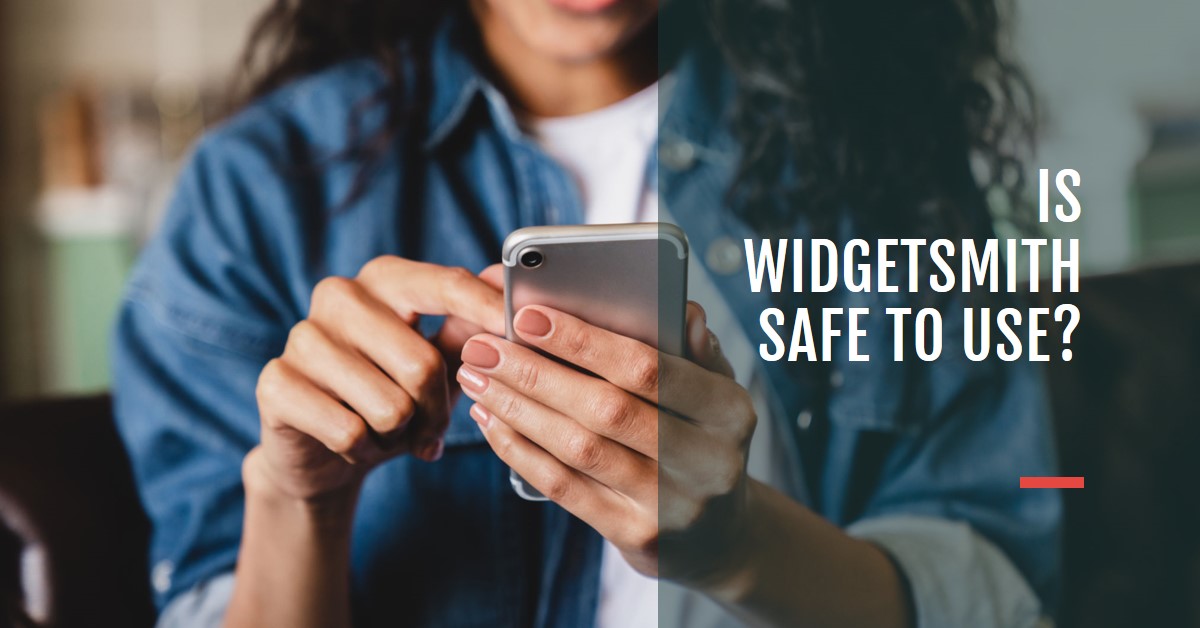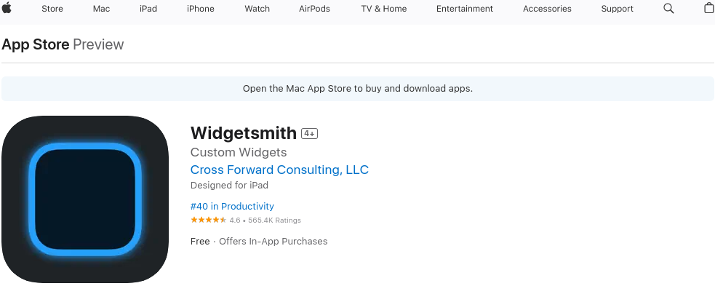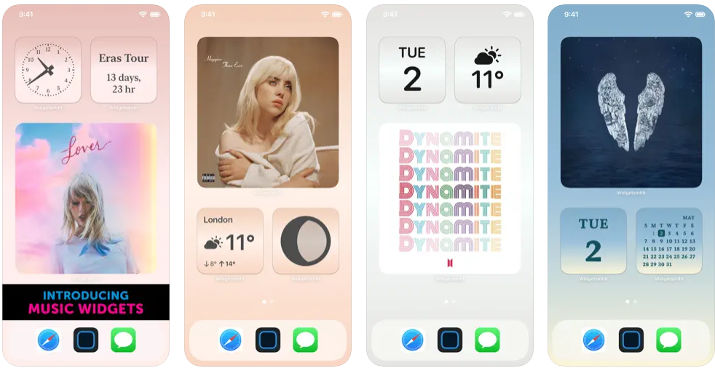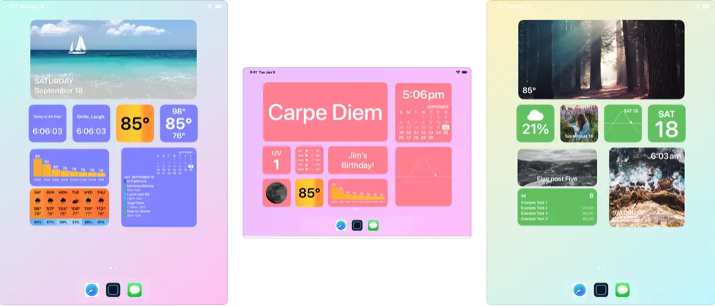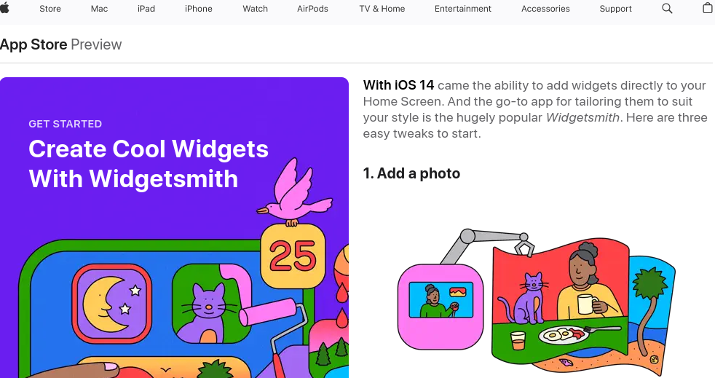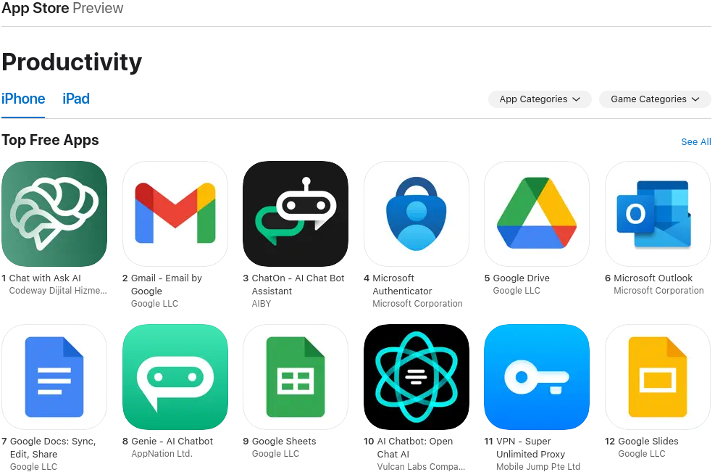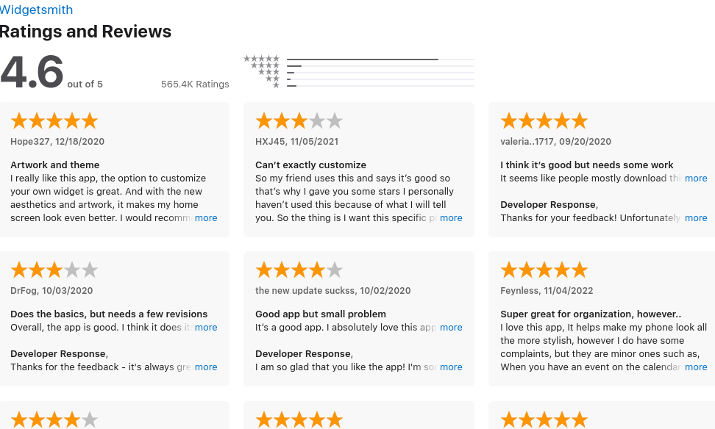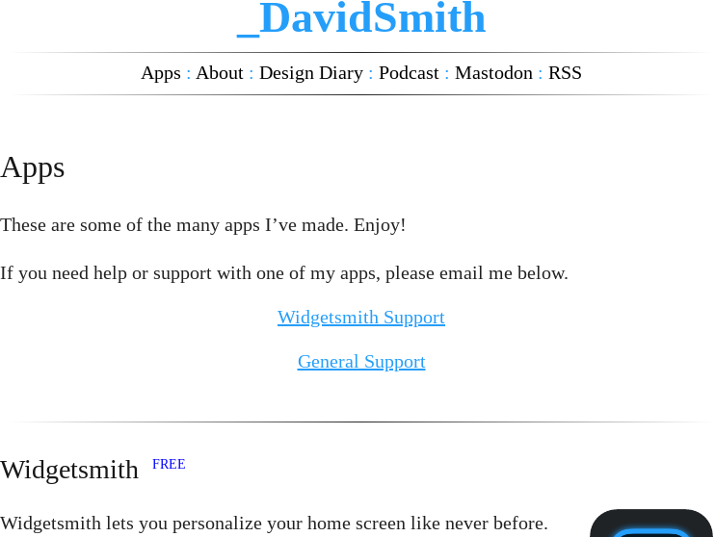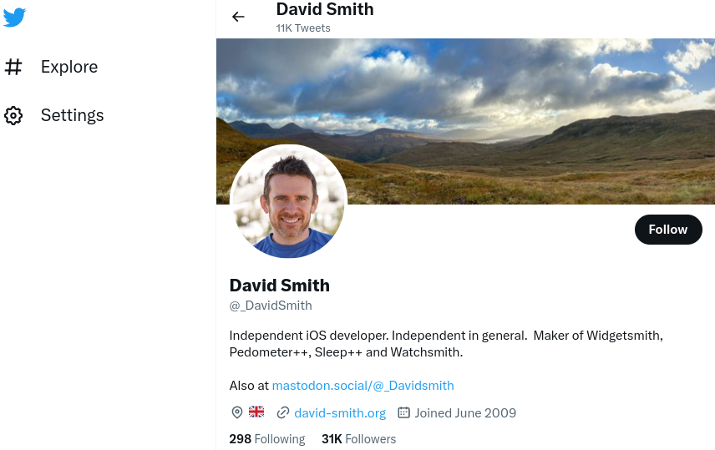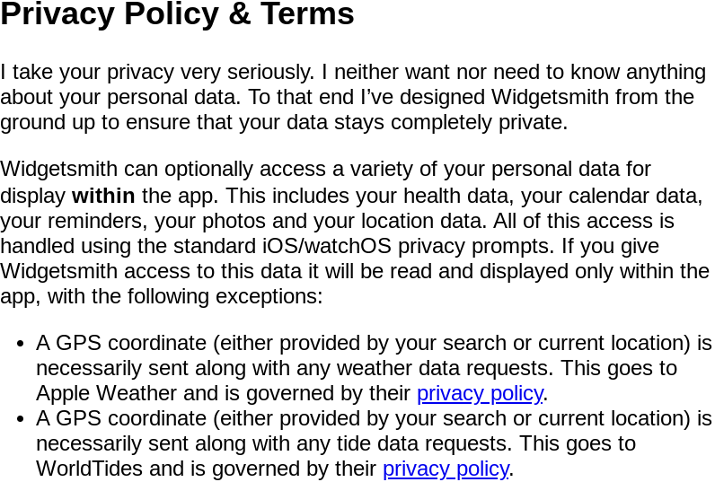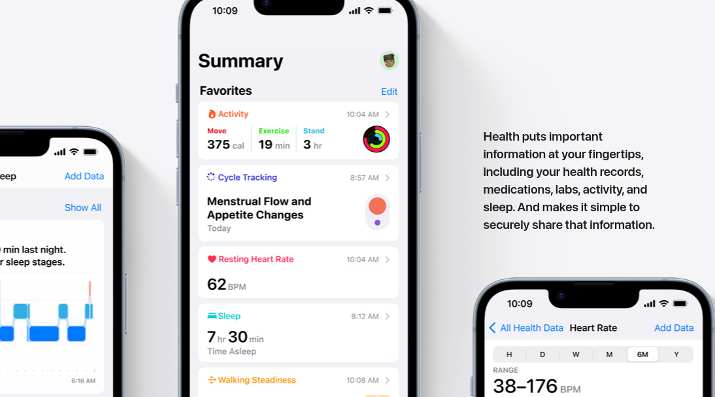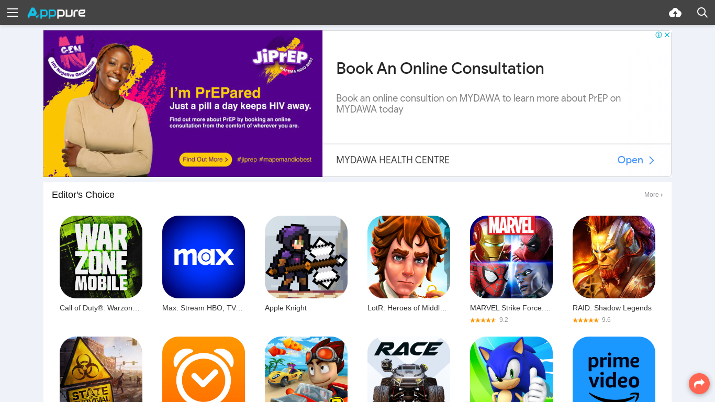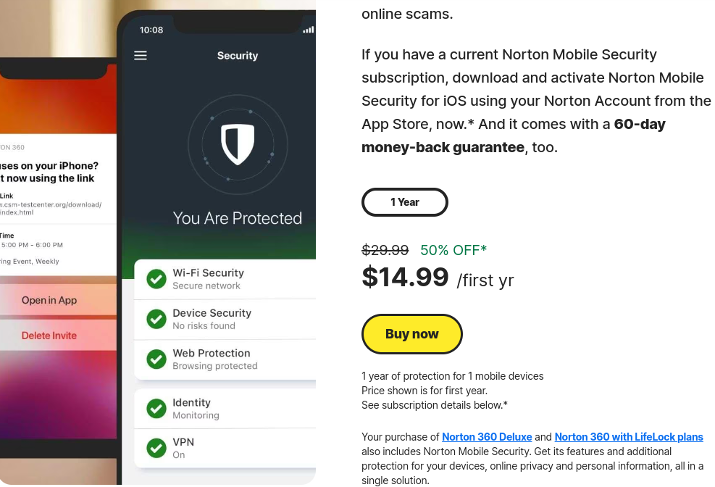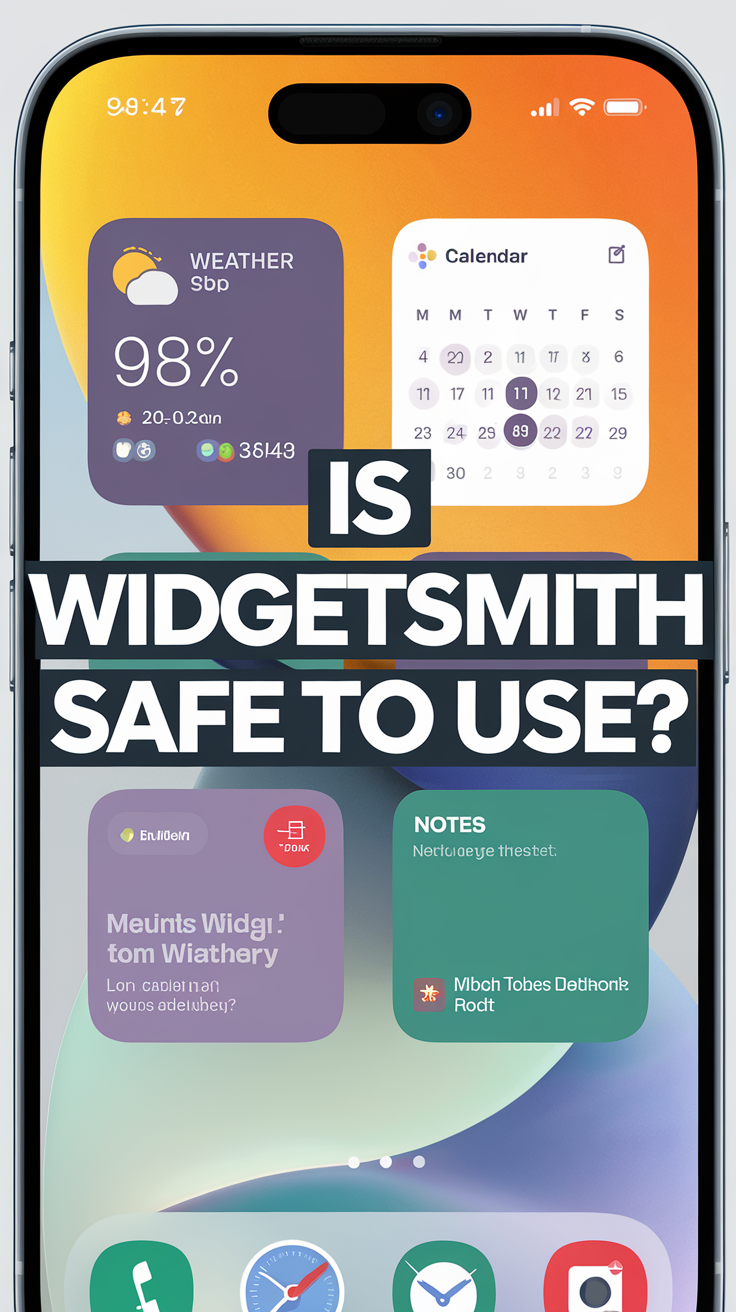Is Widgetsmith a safe app? Can it harm your phone, what kind of data does it collect, and is your privacy safe when you use Widgetsmith?
In this article, I will introduce you to Widgetsmith and discuss its safety. I will also be going over some general tips for avoiding malicious apps.
The short version: Yes, Widgetsmith is safe to use. It is free of viruses and malware, and it also doesn’t collect any personal data, so your privacy is maintained.
For more details, continue reading.
Also Read: Best iPhone Widgets
What Is Widgetsmith?
Have you ever seen a friend’s phone with all kinds of cool widgets? Widgets are little sections on your home screen that show information from apps and display certain app data without needing to open the app itself.
For example, if you have a calendar widget, you can see dates and upcoming events without opening the calendar app. Similarly, a weather widget will display the forecast for the day or the upcoming days without requiring you to open the weather app.
Usually, the widget will only display limited data. For example, while a weather widget might show you temperature and rain forecasts, it might not show data such as expected wind speed.
Nevertheless, widgets are incredibly useful. You can customize your home screen and add widgets that display the information most important to you.
Widgetsmith is unique in that it is an all-in-one app that allows you to add various widgets and customize them in many ways.
For example, some widgets built into the app include date, time, weather, health tracking, and more! There are various ways you can display the time, for example, and you can customize each widget by choosing a unique theme and color.
Let’s say you want to display the time. You can have it display the day of the week with the date, the date alone, the entire month’s calendar with the current day highlighted, the sun path date, and more!
That’s far from all, though. One of the things that really makes Widgetsmith special is that you can automatically switch up the widgets that appear on your home screen.
Adding too many widgets to your home screen can easily clog up your screen. It will remove room for app shortcuts and make your home screen messy and disorganized.
Fortunately, Widgetsmith has a solution for that. Just customize a rotation of widgets as per your preferences.
For example, let’s say you typically exercise in the morning. Your health and fitness tracking widgets can appear in the morning.
After you finish your morning run, you can have the widget display the date and time. At night, it can display the weather, so you are aware of the forecast for the following day and can plan ahead.
For the weather widget, there are many options. You can display the current temperature, the forecast for the next hours, the forecast for the next days, UV and rain conditions, and more.
What’s more, Widgetsmith now allows you to add widgets to your lock screen as well. That means that you don’t even need to open your phone to see important information such as the weather.
If your fingerprint or facial ID is kind of buggy and doesn’t always open your phone’s lock screen easily, this can be very convenient and just make your life less frustrating.
Which Platforms Is Widgetsmith Available For?
Widgetsmith is only available for iOS and macOS, unfortunately. It is not yet available on the Google Play Store, and there is no indication that there are plans for it to be released on Google Play anytime soon, although that can’t be ruled out.
You can use Widgetsmith on any of these devices: iPhones, iPads, and ipad Touches with OS 14.0 or a later version and Macs with an Apple M1 Chip or a later version and macOS 11 or a later version.
Is Widgetsmith Safe to Use?
So, is Widgetsmith safe to use? That’s the question you’ve been asking this whole time, and we’ve got the answer you’ve been looking for.
Widgetsmith is absolutely safe to use. There are no security risks with using Widgetsmith, and I’ll explain why.
Here is why Widgetsmith poses no danger.
It’s Approved by Apple
Getting an app on the Apple App Store is not easy. It is definitely much harder than getting an approval for an app on the Google Play Store.
Apple is pretty strict with its requirements and doesn’t just approve apps left and right. The tech company is known for prioritizing the security and safety of its users, and it makes sure that each app it approves is safe and free of malware or viruses.
That doesn’t mean that malware never gets in. However, since Apple has a lot more restrictions on the content it allows on the App Store, a far greater percentage of apps contain malware on Google Play than Apple.
It Was Featured by Apple
Not only that, but Apple actually featured the Widgetsmith app on its website. That means a lot!
If the app was unsafe or reliable, Apple would never recommend or feature it. The fact that it did shows that it has investigated the app and found that not only is it safe to use but offers a lot of value to users.
You can see the featured story here.
On the App Store, Apple also currently lists the app as #39 in popularity in the Productivity category. That’s saying a lot!
Just for perspective, the Productivity category features apps like:
- Gmail
- Bing
- Google Drive
- Outlook
- Google Docs
- Google Drive
Those are insanely popular software tools, so the fact that Widgetsmith made it to #39 in that category means a lot.
It Has a Lot of Good Reviews
It’s one thing to have good reviews. It’s another thing to have a general rating of 4.6 stars from over 565,000 reviews.
With so many reviews and such a good rating, you can rely on the app being safe. If it was unsafe and introduced viruses or malware, you can be sure people would have rated it poorly.
The Developer Is Well-Known
Most of the time, the risk of getting malware from an app is when the developer isn’t really well-known. Often, the developer will hide behind random company names and not provide their real name.
That’s not the case here, though. The developer of Widgetsmith is well-known – his name is David Smith (I guess that’s where he got the name for Widgetsmith and one of his other apps, Watchsmith).
He has a blog called David-Smith.org, where you can learn more about David, his apps, and his vision.
David’s been an independent developer for Apple since 2008 and co-hosts a podcast every week called Under the Radar.
You can check out his Twitter profile as well.
With such a large online profile, he has a reputation to protect. It goes without saying that he wouldn’t intentionally introduce malware or viruses into his apps – he simply has too much to lose – but he also likely works hard to ensure that any potential security flaws or bugs are patched.
It Has Been Featured in Other Media Publications
Not only has Widgetsmith been featured by Apple, but other media publications have featured it as well. For example, Inc Magazine, a well-respected and well-known website, had a whole article on Widgetsmith and David Smith.
The writer interviewed David Smith and talked about the development and growth of his app. It’s an interesting read, so I suggest you check it out here.
It’s Been Around for a While
Widgetsmith has been around for a few years. If it had glaring safety issues, they would surely have come to the surface by now.
Besides, it’s a widely used app. At one point, it was the most popular free app on the App Store altogether!
According to Inc Magazine, linked above, David has created over 59 apps in total. He’s a pretty good developer, and he knows what he’s doing – you’re safe using his apps.
Does Widgetsmith Collect Personal Data?
For Widgetsmith to be able to work properly, it has to have access to certain types of data. For example, it can’t display weather conditions without knowing your location.
The app needs access to the following data, but it is not linked to your personal identity:
- Location
- Purchases
- Usage data
- Diagnostics
- Identifiers
I also recommend reading Widgetsmith’s privacy policy, as it’s quite illuminating and also reassuring.
According to David, he doesn’t want the responsibility of handling your data properly as per the law, which is why he doesn’t collect your data in the first place. All personal data, such as your health data and photos (for the health tracking and photo widgets) are only accessed within the app, and the data is never transmitted from your phone to some sort of external database.
The exception is your GPS coordinates, which must be sent to external parties for the app to work properly. For example, since Widgetsmith uses weather data from Apple Weather, it sends your GPS coordinates to Apple Weather, and that data is handled as per Apple Weather’s privacy policy.
Even if you sign up for Widgetsmith Premium, Apple is the one handling your payment information, not Widgetsmith. Personal information is not available to the Widgetsmith devs.
What about ads? David has gone out of the way to ensure that privacy concerns are reduced despite the advertising on the app, which is how he makes a profit from the free version.
The ads are managed and administered by Google AdMob, but David has customized the settings so that it doesn’t show personalized ads.
Have you ever searched for a product, like a life insurance policy, only to suddenly see ads for life insurance policies pop up everywhere? That’s personalized advertising, and Google and other ad networks use tracking code snippets to track your interests and browsing history across the web.
Also, he disabled user tracking and analytics for ads within the app.
Does Widgetsmith Track Your Physical Activity?
Widgetsmith integrates with Apple Health to display widgets that show certain health and activity tracking information.
Some information it can show you is how many steps you walked that day, an overview of your activity (standing vs moving throughout the day), distance walked, and more.
However, Widgetsmith itself is not tracking you. Rather, it’s your Apple Watch that is tracking you; Widgetsmith simply connects to Apple Health and pulls the data from there.
How to Protect Yourself From Malicious Apps?
While Widgetsmith is a safe app, there are other apps that carry the potential for malware, viruses, adware, spyware, and even ransomware. Cybersecurity is a hot topic, and a lot more people are becoming aware of the risks inherent in using digital devices.
Here are my top tips for avoiding malicious apps.
Don’t Install Apps From Unknown Sources
Apple, by default, doesn’t allow you to install apps from third-party sources. Android doesn’t either, but it’s easy to enable it on Android.
In the past, you would have to jailbreak your iPhone to install third-party apps (more on that in a bit). Now, a lot of people discovered they could sideload apps from Altstore or other third party app stores without jailbreaking, but there are still more limitations compared to jailbreaking.
However, due to new EU regulations, Apple will likely allow third party app installations on iOS 17 and later by default, even without jailbreaking. That’s because the EU is enacting new regulations that are intended to ensure an open and free market.
However, there are caveats – for example, this might only be possible in Europe and not elsewhere in the world.
In any case, by the time you’re reading this, it’s possible that Apple will already have allowed the installation of third party apps. Apple may still require that third party apps be approved beforehand.
My point is this: Be wary when installing apps from third party sources. Certainly don’t install apps from random websites.
That’s one of the easiest ways for you to get malware on your phone without even realizing it. If you do install a third party app, install one from a trusted developer and download it from a trusted website or third party app store.
Download an Antivirus Software
iOS is a lot safer than Android – most hackers try to target Android instead of iOS simply because it’s easier to exploit. Nevertheless, there is still a risk, so I recommend downloading an antivirus or anti-malware app to secure your phone.
Avast is a good choice, as it’s easy and lightweight. There are many other good apps as well, such as Norton.
You don’t need continuous monitoring, especially if it costs extra. It can bog down your phone, make everything slow, and use up the battery really quickly.
However, you should scan your phone often for signs of viruses and malware.
Antivirus apps usually have two types of scans you can run. One is a quick scan that looks through your apps and important files for viruses.
The other is a deeper scan that takes a lot longer and looks through everything in your phone. This deep search goes a lot further than a simple surface level search, but it can take a while.
I recommend doing a quick scan a few times a week, possibly every day. Meanwhile, a deep scan should be performed once a week or at least once every two weeks.
Some antivirus apps allow you to schedule those scans in advance so they run regularly. Otherwise, it’s really easy to forget.
Don’t Jailbreak Your iPhone
Jailbreaking your iPhone will allow you to get around a lot of the limitations and restrictions that Apple has placed on its software. You will be able to customize your device in ways you could never imagine before.
However, it carries inherent risks. When you jailbreak your iPhone, you are stripping it of a lot of the security protections Apple has put in place.
Furthermore, when you install software from third party sources that are only compatible with jailbroken iPhones, the risk of getting exploited rises significantly.
For example, KeyRaider was an exploit that stole over 225,000 Apple IDs and personal information, and it only targeted jailbroken iPhones. Regular iPhones that were not jailbroken were not susceptible to the attack.
Jailbreaking is becoming less popular than it used to be, partly because Apple has made it more difficult to jailbreak and partly because Apple is reducing the incentive to jailbreak by releasing new customization options.
Also, jailbreaking will void your warranty.
Wrapping It Up
Widgetsmith is entirely safe to use.
The developer, David Smith, is well-known, and the app has been featured by Apple and other trusted publications, so you can install it without worrying about malware.
However, I do recommend that you take some steps to prevent the installation of malicious apps on your phone. Mainly, don’t install apps from third-party sources and use an antivirus to ensure there is no malware on your phone.
